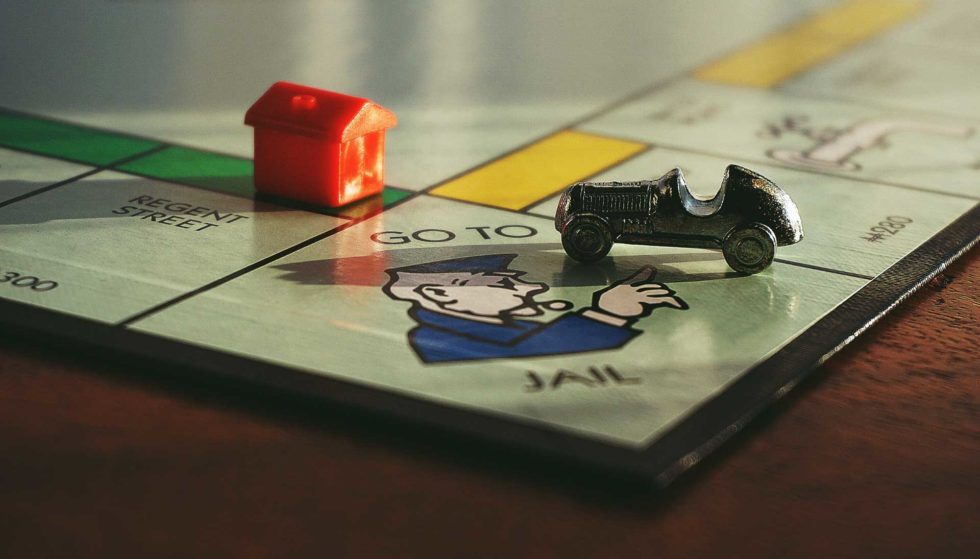What are the potential DUI fines, penalties, and jail time in SC?
Driving under the influence in South Carolina is a complex area of law that includes multiple DUI-related offenses as well as SC’s implied consent laws (when they suspend your license based on a DUI conviction or a breathalyzer result.)
The possible penalties for DUI in SC are also complex and can range from a fine to years in jail depending on the charge, the breathalyzer result, and the number of times a person has been convicted of DUI in the past.
In this article we will learn:
- The different types of DUI offenses in SC
- How the penalty is decided for each DUI case
- What “implied consent” is in SC
What is driving under the influence (DUI) in SC? There are different elements that must be proven by the State for DUI, DUAC, and felony DUI, while an implied consent violation is a separate administrative proceeding that can result in a license suspension, ADSAP requirement, and a mandatory ignition interlock device (IID).
What is DUI in SC?
SC law says that a person is considered to be driving under the influence when their “faculties to drive” are “materially and appreciably impaired.” It doesn’t matter if the impairment is caused by alcohol, drugs, or a combination of both. It also doesn’t matter if the drugs are legally prescribed.
Required Elements That Must Be Proven
The first element is “driving” – believe it or not, some DUI charges are dismissed because the person was not “driving” at the time of the incident. You can be sitting in your car listening to the radio, sleeping, or even passed out behind the wheel, but, if the police cannot prove that you were driving while intoxicated, you are not guilty of DUI.
The next element that must be proven is that your “faculties to drive” were “materially and appreciably impaired,” which can be proven with your breathalyzer or blood test result, video of your performance on the roadside field sobriety tests (FSTs), testimony from the officer or other witnesses about their observations, or any combination of the above.
Your DUI attorney, on the other hand, can contest the breathalyzer results, provide a reasonable explanation for a poor performance on the FSTs, cross examine the officer to show their bias or to bring out positive facts that show you were not intoxicated, or call “sobriety witnesses” who can testify as to your ability to drive at the time of the incident.
What’s the “Legal Limit” in SC?
There is no “legal limit” for DUI, because the State must prove that you were “materially and appreciably impaired,” as opposed to what your blood alcohol content (BAC) was at the time of the arrest. As mentioned above, your BAC can be used to help prove impairment.
SC law does provide for “inferences” based on the breathalyzer result, though:
- If your BAC was .05 or less, it is conclusively presumed that you were not under the influence of alcohol (although they may also claim you were on drugs);
- If your BAC was higher than .05 but lower than .08, there is no inference as to whether you were under the influence of alcohol; and
- If your BAC was .08 or higher, the court will tell the jury that they can infer that you were under the influence of alcohol, although you can still attack the State’s evidence and present your own evidence of sobriety.
What is DUAC in SC?
DUAC, or “driving with an unlawful alcohol concentration,” is different.
If you are charged with DUAC in SC, the State doesn’t have to prove that you were “materially and appreciably impaired” – they only have to prove that your blood alcohol content (BAC) was higher than .08.
In this sense, the “legal limit” in SC is .08%.
You can still present evidence of sobriety and challenge both the admissibility and the accuracy of the breathalyzer or blood test. The potential punishment for DUAC is the same as it would be if were convicted of DUI in SC.
Implied Consent Laws in SC
In SC, the law says that you “impliedly consent” to take a breathalyzer test when you drive on SC highways. Despite this, you can refuse to take the breathalyzer (and should, in almost all circumstances.)
If you refuse, however, your license will be automatically suspended. On the other hand, if you take the test and the result is .15% or greater, your license will still be automatically suspended.
You or your attorney must then immediately request an implied consent hearing, where your attorney can challenge the breathalyzer results, the probable cause for the arrest, and whether the officer followed the proper procedure when he or she offered you the breath test.
Felony DUI with Great Bodily Injury or Death
It is important to note that an “ordinary” DUI charge can be a felony charge because it is your 4th or subsequent offense and not because of great bodily injury or death involved in the circumstances of the case. Below we will discuss felony DUIs involving great bodily injury or death.
Felony DUI in SC is much more serious than an “ordinary” DUI, because someone was hurt or killed – police and prosecutors will prosecute these cases vigorously because there is often media attention and angry victims or victims’ families who are pushing for a conviction and prison time.
For a felony DUI conviction, the State must prove 1) that you were under the influence, 2) that you were driving, 3) that, while driving, you committed “any act forbidden by law or neglect[ed] any duty imposed by law in the driving of the motor vehicle,” and 4) that your act or neglect caused great bodily injury or death to another person.
If a person suffered great bodily injury as a result, the penalties are a mandatory minimum sentence of 30 days up to 15 years in prison. If death was the result, it is punishable by a mandatory minimum sentence of one year and up to 25 years in prison.
What are the potential penalties for other DUI-related offenses in SC?
DUI Penalties in SC
How long can you go to jail if you are convicted of DUI in SC?
That depends on whether you took the breathalyzer or blood test, what the reported BAC level was, and how many prior convictions you have for DUI or DUAC in the last ten years.
The chart below shows the potential fines, jail sentences, license suspension, whether the conviction is a misdemeanor or felony, and whether you must install a mandatory ignition interlock device (IID) for each level of DUI or DUAC offenses in SC:
| Charge of DUI or DUAC | BAC Level | Offense Classification | Penalty (does not include court costs and assessments) | Mandatory IID | License Suspension |
| 1st Offense | < .10% | misdemeanor | Fine = $400 OR Jail = 48 hours to 30 days | None | 6 months |
| 1st Offense | .10-.15% | misdemeanor | Fine = $500 OR Jail = 72 hours to 30 days | BAC .15% or more requires 6 successful months | Depends on BAC: .10-.14% = 6 months .15 % or more = indefinite suspension with IID |
| 1st Offense | >.15% | misdemeanor | Fine = $1,000 OR Jail = 30 to 90 days | 6 successful months to get license back | Indefinite suspension |
| 2nd Offense | <.10% | misdemeanor | Fine = $2,100-$5,100 AND Jail = 5 days to 1 year | 2 years | Indefinite suspension |
| 2nd Offense | .10-.15% | misdemeanor | Fine = $2,500-$5,500 (can’t be suspended lower than $1,100) AND Jail = 30 days to 2 years | 2 years | Indefinite suspension |
| 2nd Offense | >.15% | misdemeanor | Fine = $3,500-$6,500 (can’t be suspended lower than $1,100) AND Jail = 90 days to 3 years | 2 years | Indefinite suspension |
| 3rd Offense | <.10% | misdemeanor | Fine = $3,800-$6,300 AND Jail = 60 days to 3 years | 3 years | Indefinite suspension |
| 3rd Offense | .10-.15% | misdemeanor | Fine = $5,000-$7,500 AND Jail = 90 days to 4 years | 3 years | Indefinite suspension |
| 3rd Offense | >.15% | misdemeanor | Fine = $7,500-$10,000 AND Jail = 6 months to 5 years | 3 years – or If the 1st conviction occurs within 5 years then 4 years IID | Indefinite suspension |
| 4th or Subsequent Offense | <.10% | felony | Jail = 1-5 years | Life | Indefinite suspension |
| 4th or Subsequent Offense | .10-.15% | felony | Jail = 2-6 years | Life | Indefinite suspension |
| 4th or Subsequent Offense | >.15% | felony | Jail = 3-7 years | Life | Indefinite suspension |
Other Penalties for a DUI Conviction in SC
Besides the potential for fines and prison time, there are many other “collateral consequences” for a DUI conviction in SC. These include:
- ADSAP (Alcohol and Drug Safety Action Program) – this is required for either a DUI conviction or an implied consent suspension, and the program must be completed before you can get your license back.
- SR-22 insurance – this is a quite expensive insurance policy that you must purchase and carry continuously for years after a DUI conviction as a requirement for regaining your license.
- License suspension – if you are convicted of DUI or DUAC, your license will be suspended. This is in addition to any suspension you received because of an implied consent violation in the same case.
- Ignition interlock device (IID) – you may also be required to install an ignition interlock device as a result of a DUI conviction or implied consent violation, which requires you to blow into the device and prove that you are not intoxicated before your car will start.
- Difficulty finding employment – many employers simply will not hire a person who has a DUI on their record. What makes this worse is that DUI in SC is considered a traffic offense that cannot be expunged from your record.
- Financial costs – besides the fines that you may have to pay for a DUI conviction, there are costs associated with ADSAP, ignition interlock device monitoring, court costs, and, of course, the expense of hiring a DUI defense attorney to handle your case.
Judicial Discretion in Sentencing
If you are convicted of DUI, the court has considerable discretion in sentencing. Although most DUI offenses in SC have a mandatory minimum sentence, the court can, in some cases, order community service instead of the mandatory minimum.
In other cases, the court may choose to sentence you to the maximum sentence under the law, which is just one more reason why it is critical to retain an experienced DUI defense lawyer immediately when you are arrested and charged with DUI.
The court’s decision on what sentence to give you may depend on:
- Your criminal record (DUIs or other prior criminal convictions);
- The severity of your case – For example, was there an accident and are there victims in court demanding a harsh sentence?
- Mitigation prepared by your attorney – Can your attorney present information to the court that “humanizes you” and shows that you are not just some drunk who got behind the wheel? Are there members of the community willing to come forward and speak for you? Do you have family, volunteer in the community, or work a steady job?
If you are facing prison time, your DUI defense attorney can play a critical role in minimizing the amount of prison time you receive or, in some cases, may be able to help you to avoid prison altogether.
Don’t leave your freedom to chance. If you’re facing a DUI charge in South Carolina, immediately contact the attorneys at Templeton Mims & Ward so we can start building your defense.


